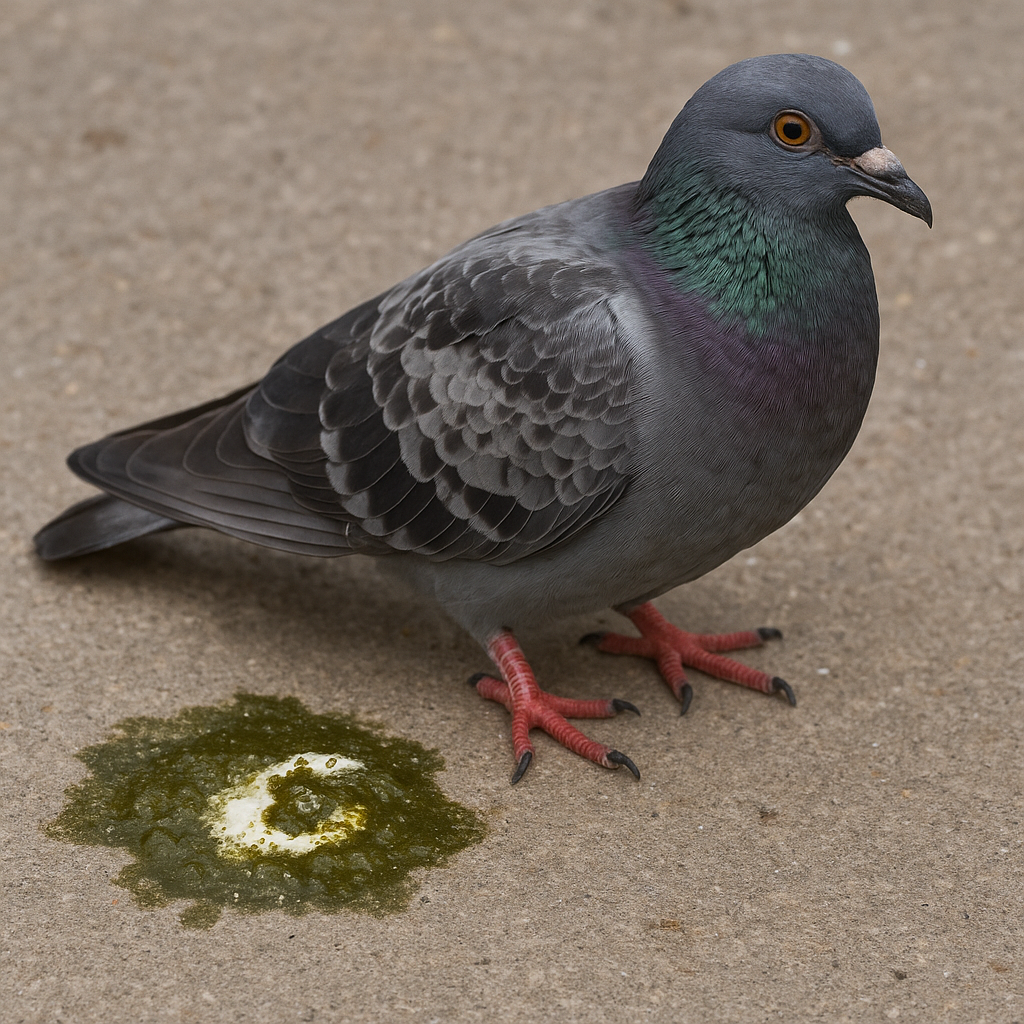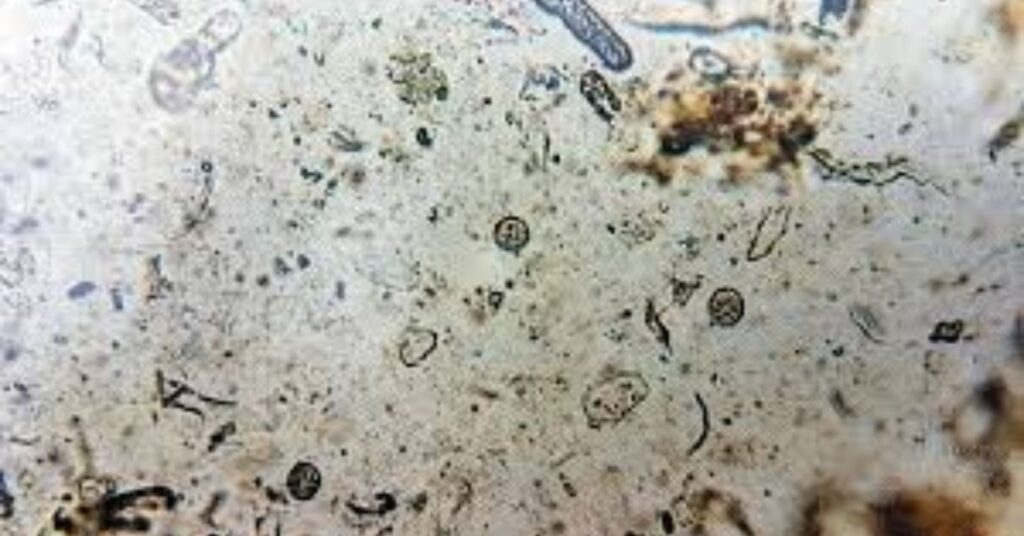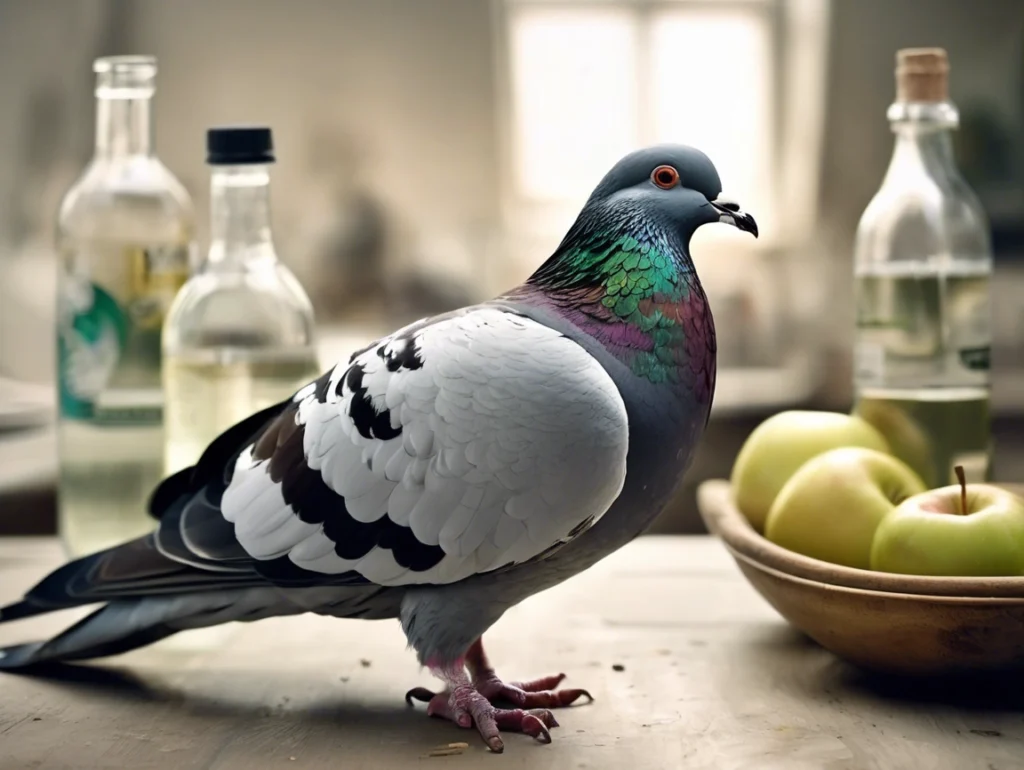Coccidia in pigeons is a common but potentially dangerous intestinal parasite that can wreak havoc on your loft if left unchecked. In this comprehensive guide, you’ll learn what coccidia is, how it affects your pigeons, how to spot it early, and most importantly, how to treat and prevent it effectively.
To better understand and manage coccidia in pigeons, let’s begin with a real-life story:
A seasoned fancier named Joe had always kept a clean loft, but one humid summer, his young birds started to look dull and underweight. After a few days, he noticed greenish, wet droppings and a lack of interest in flying. He took a dropping sample to a vet, and it was confirmed — coccidiosis. Thanks to prompt action and medication, Joe’s pigeons recovered fully. But he learned a valuable lesson: prevention is just as important as treatment.

- Treatment of Coccidia in Pigeons: Effective Medication Options
- Natural Treatment for Coccidiosis in Pigeons
- Signs of Coccidia in Pigeons: What to Watch For
- Best Treatment for Coccidiosis in Pigeons: Top Recommendations
- Coccidiosis Pigeon Poop: What It Looks Like
- Coccidia in Pigeons Treatment: A Step-by-Step Plan
- Symptoms of Coccidia in Pigeons: Complete Checklist
- (FAQ)
Treatment of Coccidia in Pigeons: Effective Medication Options
When it comes to the treatment of coccidia in pigeons, time is critical. The sooner you intervene, the better your birds’ chances of a full recovery. Here are the most trusted medications used by pigeon keepers worldwide:
- Amprolium-based products (like Coxoid and Amprol): These interfere with the parasite’s ability to reproduce in the bird’s intestine.
- Toltrazuril and Diclazuril: These modern, highly effective anticoccidials can be given via drinking water.
- Sulpha-based combination powders: Contain Sulphaquinoxaline, Ethopabate, Vitamin K3, and more to address secondary issues.
Always follow up with vitamin supplementation after any medication to restore gut flora and support immunity.
Natural Treatment for Coccidiosis in Pigeons
If you’re looking for a natural treatment for coccidiosis in pigeons, here are some proven home-based methods to help:
- Garlic and apple cider vinegar: Both have natural antibacterial and antiparasitic properties.
- Oregano oil: A powerful herb oil added in small quantities to water or feed.
- Zeolite powder: Used in lofts to absorb moisture and reduce oocyst maturation.
These methods work best in early stages or as supportive care alongside vet-recommended treatments.
Signs of Coccidia in Pigeons: What to Watch For
Early detection is key. The most telling signs of coccidia in pigeons include:
- Decreased appetite
- Watery, greenish, or bloody droppings (a tell-tale sign)
- Fluffed-up feathers and dull appearance
- Lethargy or weakness
- Open-mouth breathing
- Swollen vent area
Any one of these signs warrants closer inspection and possibly a fecal test under a microscope.
Best Treatment for Coccidiosis in Pigeons: Top Recommendations
The best treatment for coccidiosis in pigeons often includes a combination of effective medication, proper loft hygiene, and immune support. Here’s what the pros recommend:
- Coxitabs or Tri-Kill for mild to moderate outbreaks.
- Toltrazuril or Diclazuril for severe or recurring infections.
- Support with probiotics and vitamin B complex post-treatment.
- Isolate affected birds during treatment.
Coccidiosis Pigeon Poop: What It Looks Like
Coccidiosis pigeon poop can vary in appearance, but the most frequent indicators are:

- Soft, watery consistency
- Greenish or brownish tint
- Sometimes mixed with mucus
- In advanced cases, bloody stools
Monitoring droppings is one of the simplest ways to catch the disease early.
Coccidia in Pigeons Treatment: A Step-by-Step Plan
For an effective treatment plan for coccidia in pigeons treatment plan:
- Isolate the affected pigeons.
- Administer Amprolium or Toltrazuril as per product instructions.
- Clean and disinfect the loft thoroughly, removing all droppings.
- Add probiotics to water for 5 days post-treatment.
- Observe for recurrence and avoid damp conditions.
Symptoms of Coccidia in Pigeons: Complete Checklist
Here’s a detailed checklist of symptoms of coccidia in pigeons to watch for:
- Weight loss (“going light”)
- Poor feather condition
- Drop in race performance
- Dehydration or increased water intake
- Reduced flight ability
- Dispirited behavior
- Swollen or red cloaca
If multiple symptoms are present, assume infection until proven otherwise.
Coccidia in pigeons doesn’t have to mean disaster. With regular cleaning, vigilant observation, and proper treatment, your flock can thrive even in high-risk conditions.
Pro Tip: Prevent future outbreaks by treating new birds before introducing them and keeping the loft dry year-round.
For more information and a list of effective products, check Palomacy’s Pigeon Health Resources.
(FAQ)
What are the symptoms of coccidia in pigeons?
The symptoms include watery or greenish droppings, weight loss, poor feather quality, lethargy, and decreased flight performance.
What are the symptoms of coccidiosis in birds?
Birds may show signs such as diarrhea (sometimes bloody), loss of appetite, ruffled feathers, general weakness, and rapid weight loss.
What is the best cocci treatment for pigeons?
The best treatment typically involves Amprolium-based medications or Toltrazuril, combined with probiotics and strict litter hygiene.
Can birds recover from coccidiosis?
Yes, birds can recover fully if the disease is detected early and treated promptly with the right medication and supportive care.

